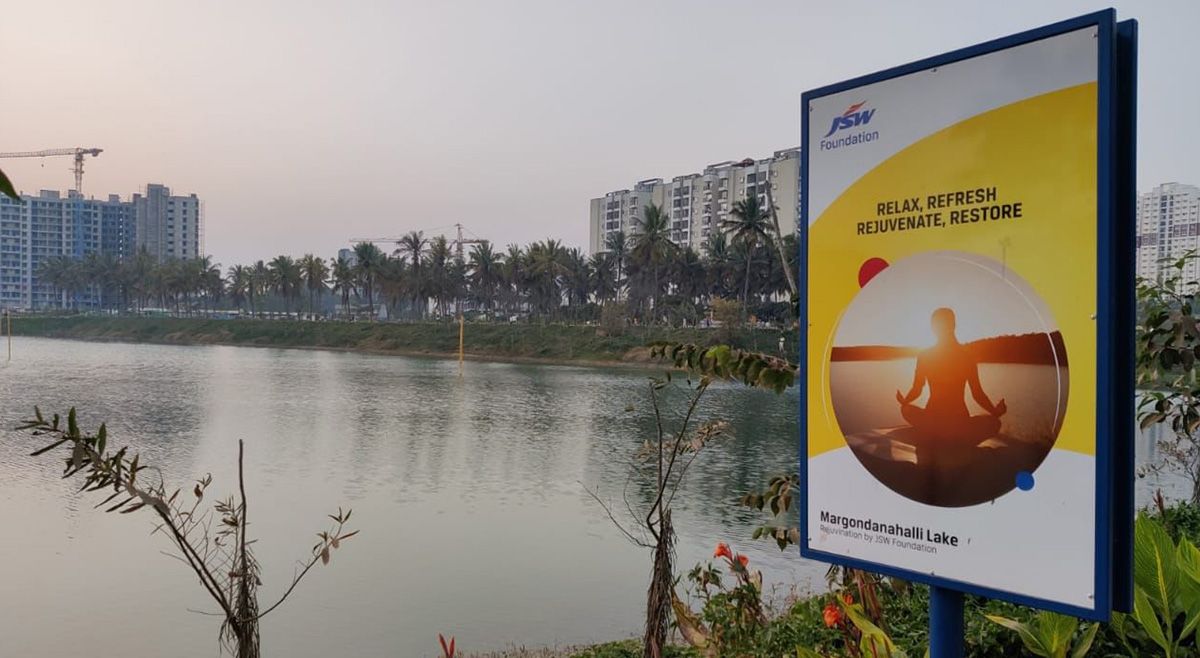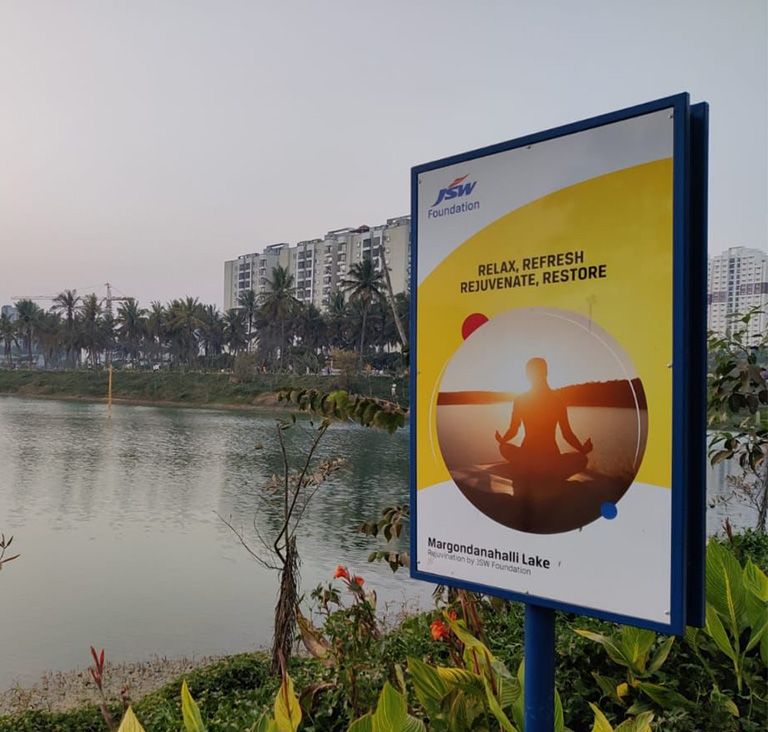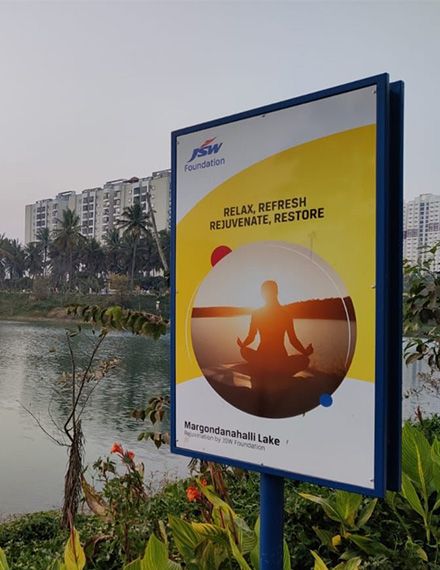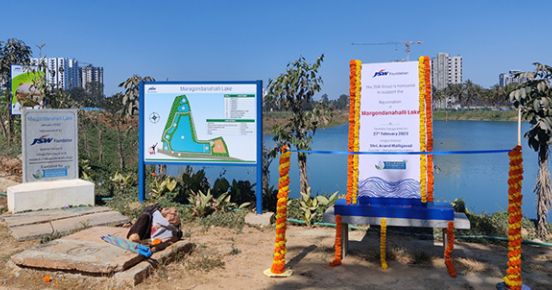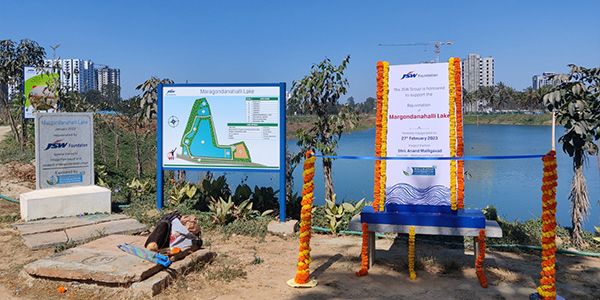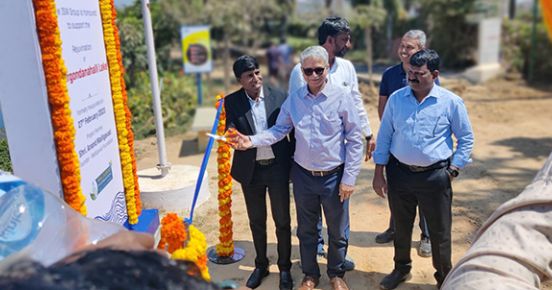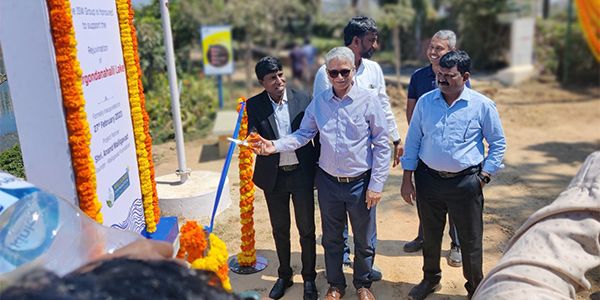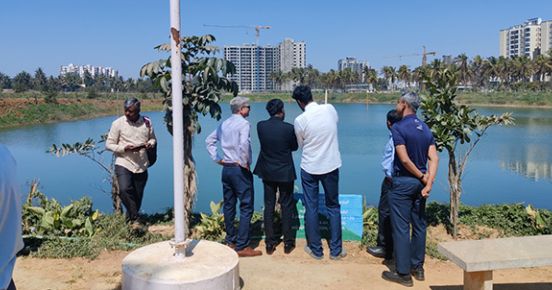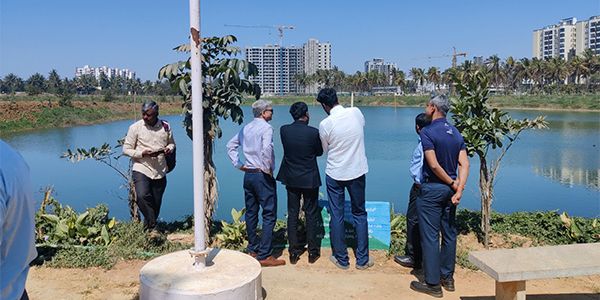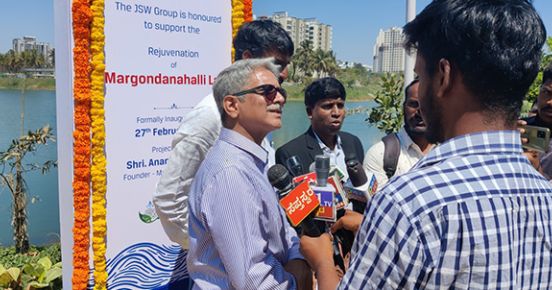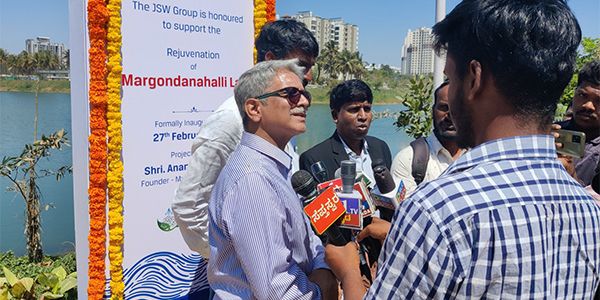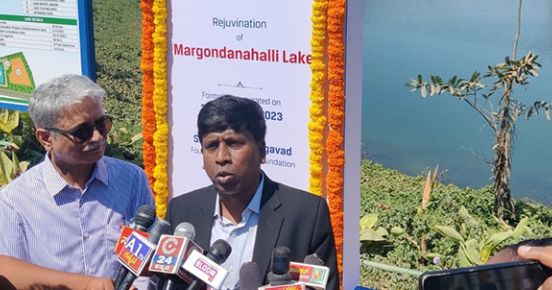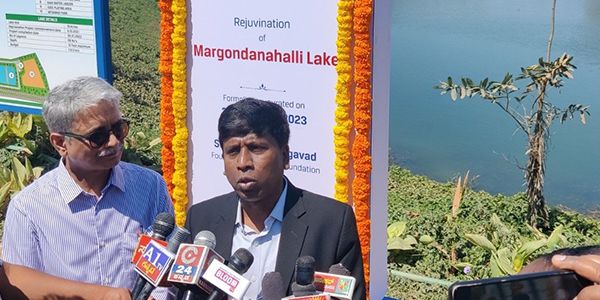JSW Group completes ecological restoration of Margondanahalli Lake in Bengaluru
JSW Group has completed the restoration and rejuvenation of Margondanahalli Lake project in Electronic City, Bengaluru. Mr PK Murugan, President of JSW Steel Vijayanagar and Mr Ashwini Saxena, CEO of JSW Foundation handed over the restored lake to the community. The Margondanahalli Lake has been brought back to life in an eco-friendly manner while ensuring low carbon footprint through the use locally available natural materials. JSW Foundation executed the restoration of this lake by constructing floating wetlands to treat the sewage water entering the lake’s location. More than 12,000 canna and vetiver plants were used to construct 10 floating wetlands all over the lake. The roots of these plants act as natural purifiers by absorbing toxins & pollutants to keep the water naturally treated and devoid of odour & colour. The local residents collaborated on the restoration project by planting more than 4,500 saplings all around the lake’s location.
Key Highlights of Margondanahalli Lake Restoration Project:
Before restoration, the Margondanahalli Lake’s was in a dire state. It was filled with sewage and sludge. Wild and frenzied growth of hyacinths caused foul odour, rendering it inaccessible to local residents and community. The lake’s condition was further worsened by the dumping of city waste and other debris. Over time, it was heavily encroached upon with a proliferation of weeds, leading to the death of marine life due to eutrophication. As part of the Margondanahalli Lake’s restoration, JSW Foundation and Malligavad Foundation were able to rejuvenate the Lake as a natural recreational zone for the local residents. The highlights of the restoration are as follows:
The highlights of the restoration are as follows:
- The entire Lake comprises 15 percent of Natural Sewage Treatment area while the remaining 85 percent is a reserve for collecting fresh rainwater. These two areas of the Lake are separated by earthen bunds, without any concrete structures.
- More than 10 floating wetlands were created to ensure natural sewage treatment of lake's water.
- Walking paths have been created using the soil excavated from the lake bed to provide local community members an opportunity to connect with nature.
- More than 16,000 plants and trees, including Wadelia have been planted all in and around the Lake’s location to ensure ecological balance and control soil erosion. It is now thriving with rich flora and fauna.
- The local residents collaborated on plantation drives for the lake restoration.
- Margondanahalli Lake restoration creates additional water storage capacity of 1 Lakh cubic meters.
- The lake now serves as a recharging source for borewells for drinking water
- The improved water quality has led to an increase in native bird species, even in the shallow areas of the lake.
- Birds such as wire-tailed swallows, green bee-eaters, scaly-breasted munia, and white-throated kingfisher now frequent the lake.
- Over the weekends, the lake is anticipated to receive over 20,000 visitors engaging in diverse recreational activities.
